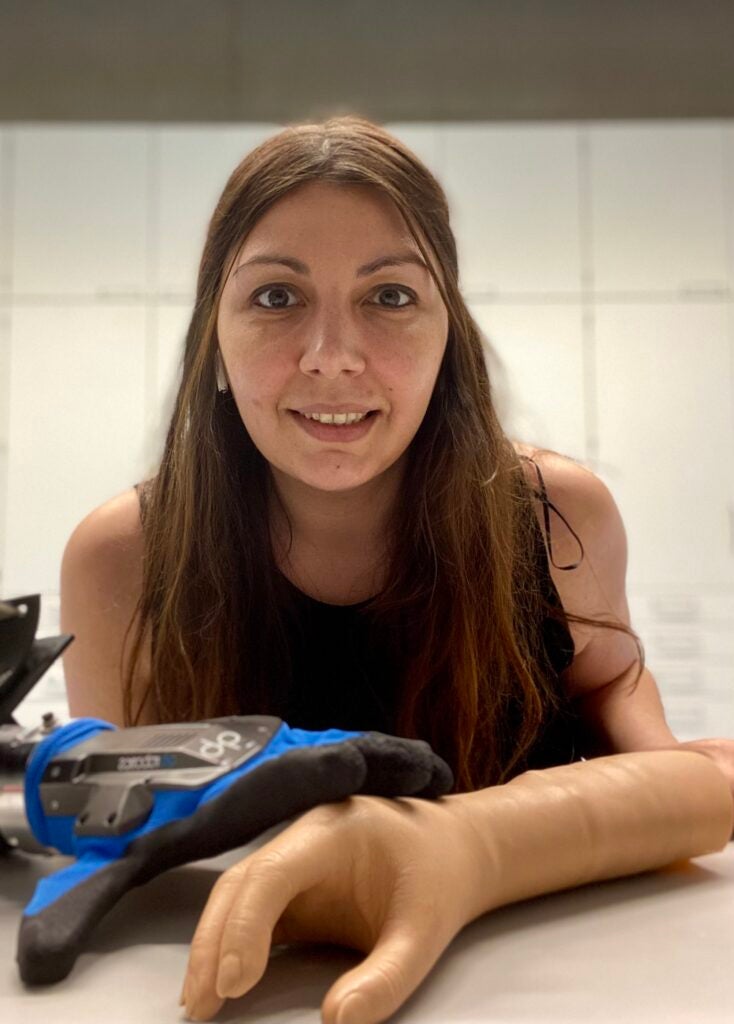

The Center for Neuroengineering has awarded a pilot grant for a new collaborative project between researchers from Georgetown University’s Department of Neuroscience and the School of Computation, Information and Technology of the Technical University of Munich (TUM). Dr. Christina Piazza (TUM) and Dr. Ella Striem-Amit’s (GUMC) project is set to advance the landscape of prosthetics with the development of a novel soft hand prosthesis.
“We greatly appreciate the CNE pilot grant. This will start a new collaboration to combine engineering and neuroimaging to investigate the impact and perception of bio-inspired design principles for upper limb prostheses — work that would not have been possible otherwise.”
Drs. Striem-Amit and Piazza
The innovative prosthesis, designed to adaptably mimic natural human movement, aims to address the current issue of high rates of prosthesis rejection due to the unnatural control of rigid prostheses. A critical feature of the prosthesis is that it can be used inside a magnetic resonance imaging (MRI) scanner, making it possible to test the prosthesis in conjunction with decoding prosthesis user intents using functional MRI neuroimaging. The goal is to develop brain-machine interfaces as possible control mechanisms, aiming to improve user acceptance of prostheses.


